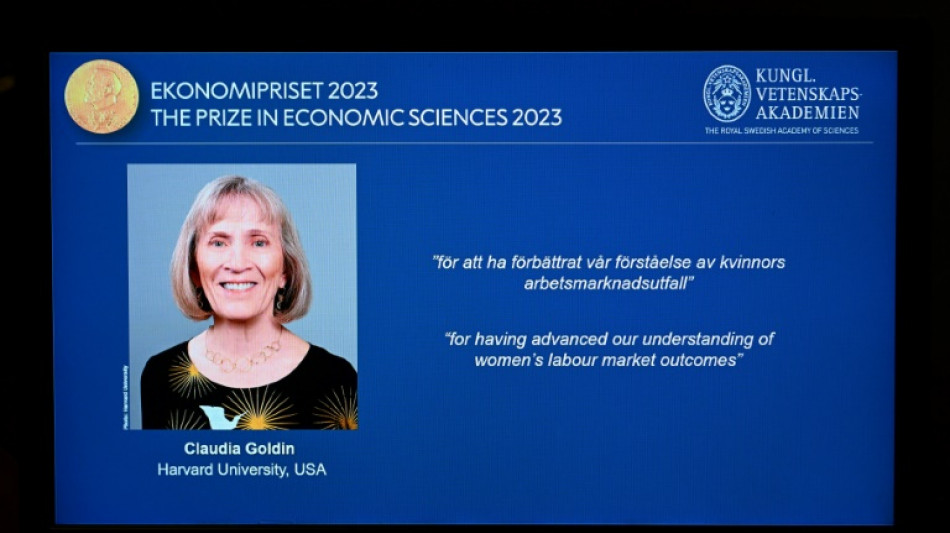
-
 FIFA Best XI 'a joke' rages Flick over Raphinha snub
FIFA Best XI 'a joke' rages Flick over Raphinha snub
-
Swiss Von Allmen pips Odermatt to Val Gardena downhill

-
 Vonn claims third podium of the season at Val d'Isere
Vonn claims third podium of the season at Val d'Isere
-
India drops Shubman Gill from T20 World Cup squad

-
 Tens of thousands attend funeral of killed Bangladesh student leader
Tens of thousands attend funeral of killed Bangladesh student leader
-
England 'flat' as Crawley admits Australia a better side
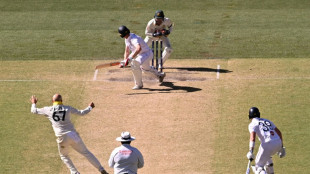
-
 Australia four wickets from Ashes glory as England cling on
Australia four wickets from Ashes glory as England cling on
-
Beetles block mining of Europe's biggest rare earths deposit

-
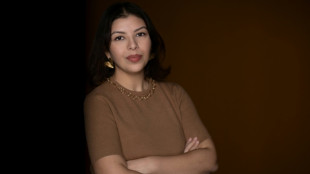 French culture boss accused of mass drinks spiking to humiliate women
French culture boss accused of mass drinks spiking to humiliate women
-
Burning effigy, bamboo crafts at once-a-decade Hong Kong festival

-
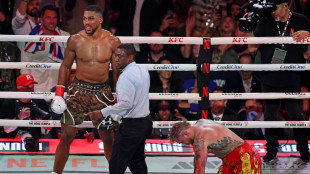 Joshua knocks out Paul to win Netflix boxing bout
Joshua knocks out Paul to win Netflix boxing bout
-
Dogged Hodge ton sees West Indies save follow-on against New Zealand

-
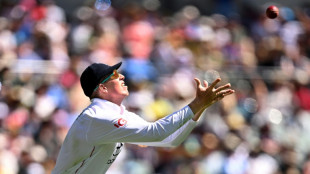 England dig in as they chase a record 435 to keep Ashes alive
England dig in as they chase a record 435 to keep Ashes alive
-
Wembanyama 26-point bench cameo takes Spurs to Hawks win

-
 Hodge edges towards century as West Indies 310-4, trail by 265
Hodge edges towards century as West Indies 310-4, trail by 265
-
US Afghans in limbo after Washington soldier attack
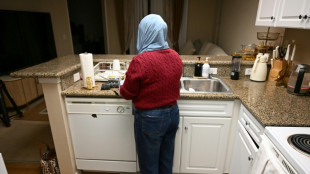
-
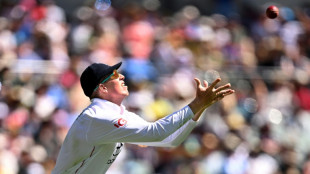 England lose Duckett in chase of record 435 to keep Ashes alive
England lose Duckett in chase of record 435 to keep Ashes alive
-
Australia all out for 349, set England 435 to win 3rd Ashes Test
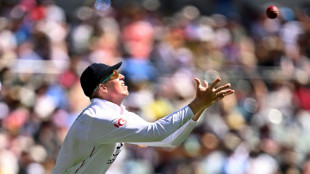
-
 US strikes over 70 IS targets in Syria after attack on troops
US strikes over 70 IS targets in Syria after attack on troops
-
Australian lifeguards fall silent for Bondi Beach victims

-
 Trump's name added to Kennedy Center facade, a day after change
Trump's name added to Kennedy Center facade, a day after change
-
West Indies 206-2, trail by 369, after Duffy's double strike

-
 US strikes Islamic State group in Syria after deadly attack on troops
US strikes Islamic State group in Syria after deadly attack on troops
-
Awake Breast Augmentation: Gruber Plastic Surgery Highlights Live Implant Sizing Under Local Anesthesia With No Sedation for Eligible Patients

-
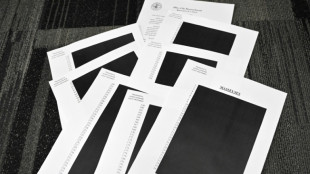 Epstein files opened: famous faces, many blacked-out pages
Epstein files opened: famous faces, many blacked-out pages
-
Ravens face 'special' Patriots clash as playoffs come into focus

-
 Newly released Epstein files: what we know
Newly released Epstein files: what we know
-
Musk wins US court appeal of $56 bn Tesla pay package

-
 US judge voids murder conviction in Jam Master Jay killing
US judge voids murder conviction in Jam Master Jay killing
-
Trump doesn't rule out war with Venezuela

-
 Haller, Aouar out of AFCON, Zambia coach drama
Haller, Aouar out of AFCON, Zambia coach drama
-
Nasdaq rallies again while yen falls despite BOJ rate hike

-
 Bologna win shoot-out with Inter to reach Italian Super Cup final
Bologna win shoot-out with Inter to reach Italian Super Cup final
-
Brandt and Beier send Dortmund second in Bundesliga

-
 Trump administration begins release of Epstein files
Trump administration begins release of Epstein files
-
UN Security Council votes to extend DR Congo mission by one year

-
 Family of Angels pitcher, club settle case over 2019 death
Family of Angels pitcher, club settle case over 2019 death
-
US university killer's mystery motive sought after suicide

-
 Rubio says won't force deal on Ukraine as Europeans join Miami talks
Rubio says won't force deal on Ukraine as Europeans join Miami talks
-
Burkinabe teen behind viral French 'coup' video has no regrets

-
 Brazil court rejects new Bolsonaro appeal against coup conviction
Brazil court rejects new Bolsonaro appeal against coup conviction
-
Three-time Grand Slam winner Wawrinka to retire in 2026

-
 Man Utd can fight for Premier League title in next few years: Amorim
Man Utd can fight for Premier League title in next few years: Amorim
-
Pandya blitz powers India to T20 series win over South Africa

-
 Misinformation complicated Brown University shooting probe: police
Misinformation complicated Brown University shooting probe: police
-
IMF approves $206 mn aid to Sri Lanka after Cyclone Ditwah

-
 Stocks advance as markets cheer weak inflation
Stocks advance as markets cheer weak inflation
-
Emery says rising expectations driving red-hot Villa

-
 Three killed in Taipei metro attacks, suspect dead
Three killed in Taipei metro attacks, suspect dead
-
Seven Colombian soldiers killed in guerrilla attack: army


Claudia Goldin: Nobel-winning sleuth of the gender pay gap
Claudia Goldin has long thought of herself as a kind of detective within economics, employing tools across academic disciplines in a quest to examine how women fit into the workforce.
On Monday, Goldin, the first woman to be tenured at Harvard University's economics department, attained the "dismal science" most exalted honour: the Nobel Prize for Economics.
Reached by telephone, Goldin told AFP the Nobel is a "very important prize, not just for me, but for the many people who work in this field and who are trying to understand why there is so much change, but there are still large differences" in pay.
In her sleuthing, Goldin, 77, has sought to reveal the reasons for the long-standing gender pay gap, including the challenges women have encountered in balancing family and professional responsibilities since the early twentieth century.
Goldin has focused on five periods: the 1900-1920 period when the few women who garnered college degrees had to choose between work and family, followed by the 1920-1940 phase when women left the workforce and started families during the Great Depression.
In the years after World War II through to about 1960, women were discouraged from entering the workforce instead of raising families. But their daughters, raised in the 1970s and 1980s, benefited from the birth control pill, with more women choosing careers and more than a quarter not having children.
The most recent generation of women is still navigating these dynamics, benefiting from evolving technology that has permitted greater flexibility on when to have children, but still confronting a grinding pay gap.
In her 2021 book, "Career and family: women's century-long journey towards equity," Goldin explored the effect of what she termed "greedy work" -- jobs with inflexible or unpredictable schedules that pay better.
Through her research, Goldin determined that women were more likely to abandon such jobs, while men are more likely to be enticed by the higher pay.
"Under these conditions, women will shift to a firm with less demanding hours or leave the workforce," Goldin said in a 2021 interview with Harvard Business Review.
- 'Neglected' subject -
Goldin described her unorthodox approach in an autobiographical essay for a 1998 book on economists at work.
"There has often been no agenda or program, no particular theory that must be followed," she wrote. "Yet the subconscious produces nagging questions."
In the years after graduate school, Goldin focused initially on the economic history of the South after the Civil War.
But around 1980, Goldin began to "realise that something was missing" from the study of economics: the wife and mother.
"I neglected her because the sources had.
"Women were in the data when young and single and often when widowed," she wrote. "But their stories were faintly heard after they married, for they were often not producing goods and services in sectors that were, or would be, part of (gross national product)."
Goldin's pioneering approach included launching in 2014 undergraduate women in economics program, an initiative to encourage more female economics major.
Born in the Bronx, New York in 1946, Golden was initially fascinated by archeology and the mummies at the New York's Museum of Natural History.
When she entered Cornell University, Goldin planned to study microbiology, but soon shifted ground after taking a course on industrial organisation with economist Alfred Kahn.
Goldin is married to fellow Harvard economist Larry Katz, with the two sharing a passion for bird watching and Pika, a 13-year-old Golden Retriever whose exploits are chronicled on her web page at Harvard.
Goldin told AFP she still thinks of herself as a detective, someone who when faced with a problem, knows "I just have to find the facts, figure it out and I'll solve the problem."
F.Pedersen--AMWN



